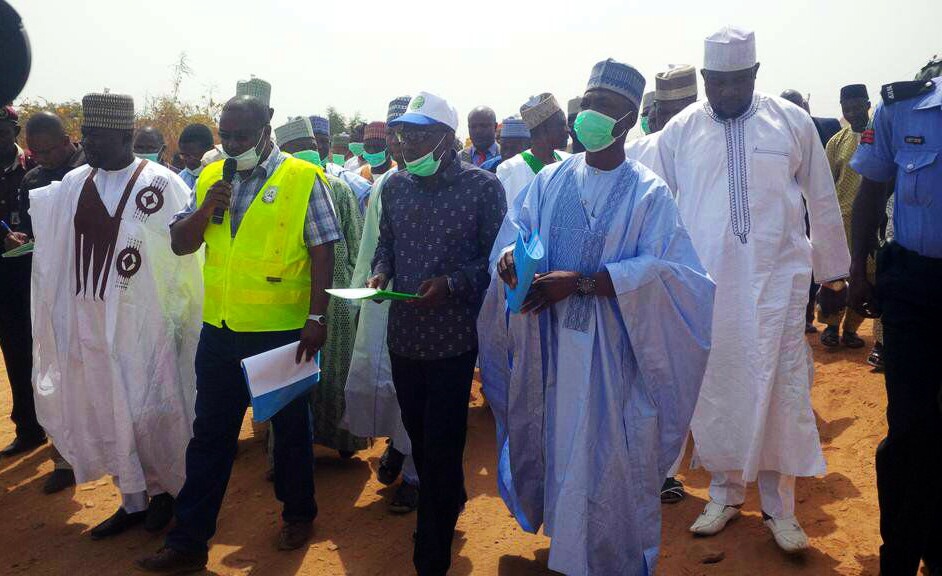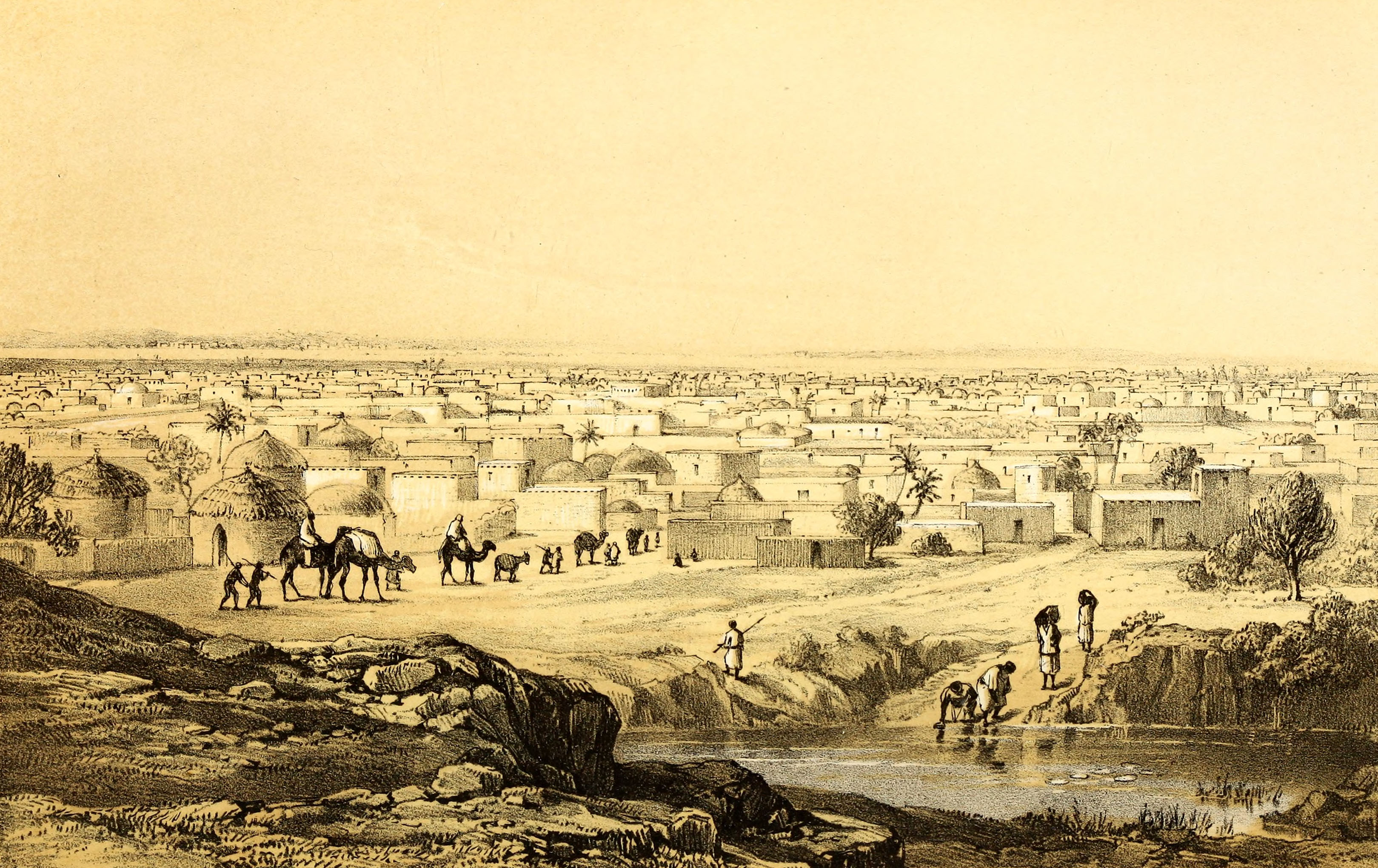|
Ali Ahmad (lawyer)
Ali Ahmad (born November 23, 1965) is a Nigerian lawyer, scholar, and politician. Currently, he is a professor of law at the University of Abuja, Nigeria. His academic career started in 1990 at Bayero University, Kano, Nigeria, and included positions at Emory University School of Law, Atlanta, Georgia, USA, the University of Ilorin, and Baze University, Abuja, Nigeria. He has practiced law in Nigeria and New York City, United States. Ali's political career started as a special assistant to the then Governor of Kwara State, Dr. Abubakar Bukola Saraki, in 2005. He was elected to Nigeria's 7th House of Representatives in 2011, representing Ilorin East/Ilorin South Federal Constituency. He moved to the All Progressives Congress (APC) in 2013 and was appointed a member of the Governing Council of the National Institute for Legislative and Democratic Studies in 2012. Under the APC, he contested and won a seat to represent Ilorin South at the Kwara State House of Assembly during the 201 ... [...More Info...] [...Related Items...] OR: [Wikipedia] [Google] [Baidu] |
Kaduna
Kaduna is the capital city of Kaduna State, and the former political capital of Northern Region, Nigeria, Northern Nigeria. It is located in north-western Nigeria, on the Kaduna River. It is a trade Centre and a major transportation hub as the gateway to northern Nigeria, with its rail and important road network. The population of Kaduna was at 760,084 as of the 2006 Nigerian census. Rapid urbanization since 2005 has created an increasingly large population, now estimated to be around 1.3 million. The project population of people in Kaduna state as at 2021 is 8.9 million people. Etymology The etymology of the word ''Kaduna'' is said to be a corruption of the Hausa word for "crocodiles", ''Kaddani'' in the Hausa language (''kaduna'' being the plural form). Another version of the name proposes a link to the Gbagyi language, Gbagyi word/name 'Odna', meaning 'river'. History Kaduna was founded by British Empire, British colonists in 1900. The first British governor of Northern Nig ... [...More Info...] [...Related Items...] OR: [Wikipedia] [Google] [Baidu] |
Kano (city)
Kano (Ajami: كانو) is a city in northern Nigeria and the capital of Kano State. It is the second largest city in Nigeria after Lagos, with over four million citizens living within ; located in the Savanna, south of the Sahel, Kano is a major route of the trans-Saharan trade. The city has been a trade and human settlement for millennia. It is the traditional state of the Dabo dynasty who since the 19th century have ruled as emirs over the city-state. Kano Emirate Council is the current traditional institution inside the city boundaries of Kano, and under the authority of the Government of Kano State. The city is one of the medieval Hausa seven kingdoms and the principal inhabitants of the city are the Hausa people. Centuries before British colonization, Kano was strongly cosmopolitan with settled populations of Arab, Berber, Tuareg, Kanuri and Fula and remains so with the Hausa language spoken as a lingua-franca by over 70 million speakers in the region. Islam arrived i ... [...More Info...] [...Related Items...] OR: [Wikipedia] [Google] [Baidu] |
Prison
A prison, also known as a jail, gaol (dated, standard English, Australian, and historically in Canada), penitentiary (American English and Canadian English), detention center (or detention centre outside the US), correction center, correctional facility, lock-up, hoosegow or remand center, is a facility in which inmates (or prisoners) are confined against their will and usually denied a variety of freedoms under the authority of the state as punishment for various crimes. Prisons are most commonly used within a criminal justice system: people charged with crimes may be imprisoned until their trial; those pleading or being found guilty of crimes at trial may be sentenced to a specified period of imprisonment. In simplest terms, a prison can also be described as a building in which people are legally held as a punishment for a crime they have committed. Prisons can also be used as a tool of political repression by authoritarian regimes. Their perceived opponents may be ... [...More Info...] [...Related Items...] OR: [Wikipedia] [Google] [Baidu] |
Executive Council Of Kwara State
The Kwara State Executive Council (also known as the Cabinet of Kwara State) is the highest formal governmental body that plays important roles in the Government of Kwara State headed by the Governor of Kwara State. It consists of the Deputy Governor, Secretary to the State Government, Chief of Staff, Commissioners who preside over ministerial departments, and the Governor's special aides. Functions The Executive Council exists to advise and direct the Governor. Their appointment as members of the Executive Council gives them the authority to execute power over their fields. Current cabinet The current Executive Council is serving under the AbdulRahman AbdulRazaq AbdulRahman AbdulRazaq (born 5 February 1960) is a Nigerian politician, who has served as governor of Kwara State since 2019. He was previously the CEO of First Fuels Limited. He contested unsuccessfully for the governor of Kwara State in 2003, 20 ... administration. Principal Officers Commissioners In January 2021, ... [...More Info...] [...Related Items...] OR: [Wikipedia] [Google] [Baidu] |
Attorney General
In most common law jurisdictions, the attorney general or attorney-general (sometimes abbreviated AG or Atty.-Gen) is the main legal advisor to the government. The plural is attorneys general. In some jurisdictions, attorneys general also have executive responsibility for law enforcement, prosecutions or even responsibility for legal affairs generally. In practice, the extent to which the attorney general personally provides legal advice to the government varies between jurisdictions, and even between individual office-holders within the same jurisdiction, often depending on the level and nature of the office-holder's prior legal experience. Where the attorney general has ministerial responsibility for legal affairs in general (as is the case, for example, with the United States Attorney General or the Attorney-General for Australia, and the respective attorneys general of the states in each country), the ministerial portfolio is largely equivalent to that of a Minister of Justice ... [...More Info...] [...Related Items...] OR: [Wikipedia] [Google] [Baidu] |
Niger State House Of Assembly
The Niger State House of Assembly is the legislative arm of the government of Niger State of Nigeria. It is a unicameral legislature with 27 members elected from the 25 local government areas of the state. Local government areas with considerable lager population are delineated into two constituencies to give equal representation. This makes the number of legislators in the Niger State House of Assembly 27. The fundamental functions of the Assembly are to enact new laws, amend or repeal existing laws and oversight of the executive. Members of the assembly are elected for a term of four years concurrent with federal legislators (Senate and House of Representatives). The state assembly convenes three times a week (Tuesdays, Wednesdays and Thursdays) for plenary sessions in the assembly complex within the state capital, Minna. Committees and oversight functions are held as determined by the members. Honourable Abdullahi Wuse and Bako Kassim Alfa as speaker and deputy speaker ... [...More Info...] [...Related Items...] OR: [Wikipedia] [Google] [Baidu] |
Ali Ahmad Kwara-Niger Road Inspection
ʿAlī ibn Abī Ṭālib ( ar, عَلِيّ بْن أَبِي طَالِب; 600 – 661 CE) was the last of four Rightly Guided Caliphs to rule Islam (r. 656 – 661) immediately after the death of Muhammad, and he was the first Shia Imam. The issue of his succession caused a major rift between Muslims and divided them into Shia and Sunni groups. Ali was assassinated in the Grand Mosque of Kufa in 661 by the forces of Mu'awiya, who went on to found the Umayyad Caliphate. The Imam Ali Shrine and the city of Najaf were built around Ali's tomb and it is visited yearly by millions of devotees. Ali was a cousin and son-in-law of Muhammad, raised by him from the age of 5, and accepted his claim of divine revelation by age 11, being among the first to do so. Ali played a pivotal role in the early years of Islam while Muhammad was in Mecca and under severe persecution. After Muhammad's relocation to Medina in 622, Ali married his daughter Fatima and, among others, fathered ... [...More Info...] [...Related Items...] OR: [Wikipedia] [Google] [Baidu] |



